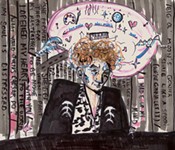Truth Is Best Approached Indirectly
Our favorite books of 2003
By Shawn Badgley, Fri., Jan. 2, 2004
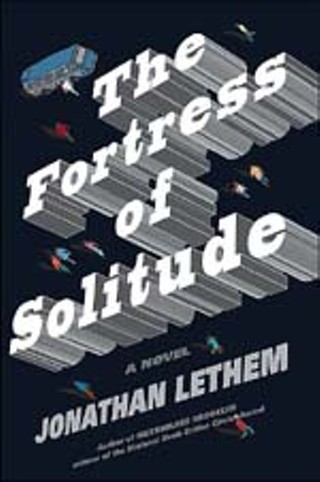
1) The Fortress of Solitude by Jonathan Lethem (Doubleday): Remember when somebody like Roth was a No. 1 bestseller? Here's the cat who can get us back to that. Lethem's coming-of-life story, fiction only by approach and embellishment, finds Dylan Ebdus growing up in a Brooklyn about to change. It finds Dylan meeting Mingus Rude, a calm, cool, and collected kid of ill destiny. It finds childhood when most of us have lost it for good. It finds Lethem setting out for a new course, one that ignores genre -- not plays with it, mind you, as he has done so well in the past, but ignores it (aside from the prop comic-book collections and the occasional delusional drunk leaping from rooftops with little more than a magic ring and a makeshift cape) -- instead embracing a soulful kind of storytelling, full of rhythm and style and layer. Something like Joni Mitchell was going for on and with Mingus, that "braided ... wall of sound." "Or," as we wrote in October, Lethem "has set out to write a story, deliberately and artfully, more configured than plotted, mournful but casual, an American story, and the American story is race, after all." We also wondered about its berth -- calling it the finest novel of the past five years -- but hedged a bit, settling on this: "a 50th-birthday gift to The Adventures of Augie March, that greatest of all fine American novels. Lethem has Bellow's style: his singing, trilling, soaring, dancing, skipping, breathless (albeit somber) command of the English language amplified with the uncanny ability to convey empathy and idea."
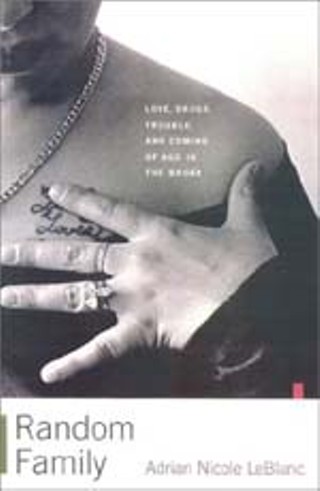
2) Random Family: Love, Drugs, Trouble, and Coming of Age in the Bronx by Adrian Nicole LeBlanc (Scribner): Our Jordan Smith in March: "LeBlanc, formerly the fiction editor at Seventeen magazine, spent 10 years living with the various characters. She has chosen telling details from a decade of life and imparted them with such honesty that their flaws are so much like our own that it becomes nearly impossible to pass judgment on them. LeBlanc starts by following the savagely sexy Jessica as she walks down the streets of her Bronx ghetto, gathering the stares of every man she passes. Her carefree generosity is infectious, but before the first chapter has ended, Jessica has already birthed three children out of wedlock, dropped out of the ninth grade, and taken up with an incredibly successful adolescent heroin dealer. The move is one that sets the stage for the rest of the book and the often-tragic choices found throughout -- and the implications of those choices are not lost on any of the people whose lives LeBlanc chronicles."

3) Timoleon Vieta Come Home by Dan Rhodes (Canongate): Upon his visit to Austin, the cryptic, funny, surly, sweet, retirement - threatening Rhodes was asked about his adoration of Daniel Johnston. "Listening to people like him made me strip away some of the layers of disguise in my writing and actually got me writing kind of sad stuff, really. I love the way that his music, although it's just so heartbreaking, is also incredibly uplifting, and funny in parts. So, yeah, I suppose that mixture of melancholy and humor is what I'm after myself, really." We agreed: "That mixture is potent in Timoleon Vieta Come Home, a novel concerning an alternately sympathetic and sickening character named Cockroft. He's a banished composer of little import -- mostly themes for such TV shows as Bibbly and the Bobblies and Turk Is a Four-Letter Word -- who lives in Umbria with his beauceron mutt, Timoleon Vieta. ... When the mysterious 'Bosnian' seeks shelter at Cockroft's villa after hearing that he essentially puts up young men in exchange for sexual favors and odd jobs, the lonely old drunk is eventually forced to choose between the two, as the surly stranger grows to hate the pet. This is where Rhodes' third book -- which becomes a kind of orbital series of folklike tales with various men, women, and children of destiny encountering a lost dog at their center -- begins to throb pleasantly with the storytelling simplicity that one of his idols, Chekov, predicated. By its end, the novel is a violent triumph."
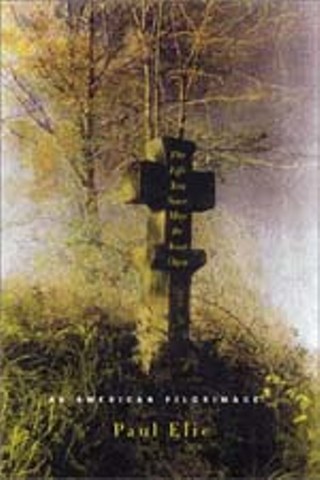
4) The Life You Save May Be Your Own: An American Pilgrimage by Paul Elie (Farrar, Straus & Giroux): I, as a Catholic and a critic, am at a loss here, and not just because I'm only halfway through the book. In his debut, FSG editor Elie takes on intertwined critical biographies of Flannery O'Connor, Walker Percy, Dorothy Day, and Thomas Merton. "For Walker Percy, the burden of accomplishment -- namely, the expectation that he should write a 'Catholic novel' -- was the undoing of all he had accomplished with The Moviegoer," Elie writes in his sustained, incisive, culturally translating way. "He thought he had to learn how to shout in silence the way Flannery O'Connor had done. From his own experience, however, he should have known otherwise: The truth -- in his own work, at least -- is best approached indirectly, through cunning and guile."
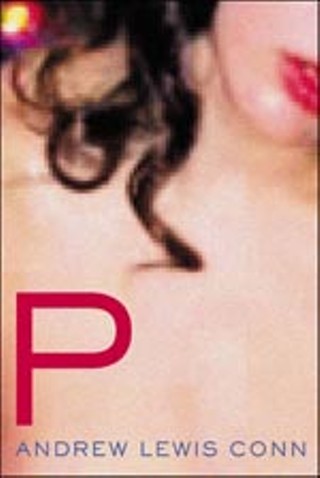
5) P by Andrew Lewis Conn (Soft Skull): We wrote in July that Conn's story of a lovelorn pornographer "Joyces its way around the streets of New York City with a calculated, empathic abandon, stopping only to showcase the young writer's 21st - century - appropriate narrative versatility and his watchmaker's way with the English language."





